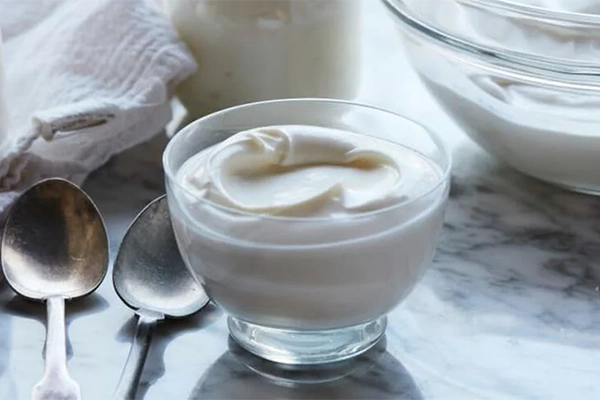Popcorn, or puffed corn kernels, has long been recognized as a beloved snack across all age groups. Yet, many of us focus solely on its delicious taste and overlook its remarkable health benefits. You might be surprised to learn that popcorn is actually one of the healthiest snacks you can include in your diet.
This light and crunchy treat is a natural source of antioxidants, dietary fiber, phenolic compounds, and essential minerals—each playing a significant role in improving overall health. From reducing symptoms of depression and regulating blood sugar to balancing cholesterol levels and preventing constipation, popcorn offers a wide range of health advantages that we’ll explore throughout this article.
If you’re looking for healthier snack choices, we recommend browsing the wide selection of products in the CRACKERS & POPCORN category and making informed choices to enjoy both flavor and wellness in every bite.

Popcorn Health Benefits: A Simple Yet Extraordinary Snack
Popcorn—light, crunchy, and delightfully satisfying—has been a timeless favorite across generations. Whether at the movies, during study breaks, or as a quick snack at home, it offers a comforting bite that feels almost too good to be healthy. But here’s the twist—popcorn health benefits go far beyond its taste and satisfying crunch. Many people don’t realize that this humble snack, when prepared properly, can be a nutritional powerhouse.
Air-popped and minimally processed popcorn is a whole grain snack that naturally contains a wealth of nutrients. It’s rich in antioxidants, high in dietary fiber, contains beneficial polyphenols, and is loaded with essential minerals like iron, magnesium, and zinc. As we dive deeper into the many ways popcorn can support your well-being, you’ll discover why this airy grain deserves a regular place in your diet.
1. Rich in Antioxidants
A major reason why experts praise popcorn health benefits is its antioxidant content. Popcorn contains a significant amount of polyphenolic antioxidants, particularly ferulic acid and other compounds that help fight oxidative stress. These antioxidants help neutralize free radicals—unstable molecules that can damage cells and contribute to aging and disease. Including popcorn in your diet can therefore contribute to the prevention of chronic illnesses like cancer, heart disease, and cognitive decline.
2. Excellent for Digestive Health
Among the most valuable popcorn health benefits is its high insoluble fiber content. This type of fiber helps bulk up stool and improves bowel regularity. It also feeds beneficial gut bacteria, supporting a healthy microbiome. If you suffer from constipation or irregular digestion, plain air-popped popcorn can offer relief in a natural and low-calorie form.
3. A Smart Snack for Weight Management
Looking to maintain or lose weight? One of the most surprising popcorn health benefits is its effect on satiety. Popcorn is a low-energy-density food, meaning you can eat a large volume without consuming too many calories. Its fiber content helps you feel fuller for longer, reducing the temptation to overeat or snack excessively between meals.
4. Balances Blood Sugar Levels
Another key area where popcorn health benefits shine is blood sugar regulation. Because it’s a whole grain with a relatively low glycemic index, popcorn digests slowly and doesn’t cause sharp spikes in blood glucose levels. This makes it a smart snack for those managing prediabetes, insulin resistance, or simply trying to maintain steady energy throughout the day.
5. Supports Heart Health
It may come as a surprise, but one of the quieter popcorn health benefits is its potential to support heart health by lowering LDL (bad cholesterol) levels. Thanks to its fiber content and whole grain composition, popcorn can reduce cholesterol absorption in the gut, promote better lipid profiles, and reduce inflammation in the cardiovascular system.

6. Provides Long-Lasting Energy
Popcorn is a source of complex carbohydrates, which the body breaks down slowly to release a steady supply of energy. This makes it an ideal snack for people with busy, active lives. Whether you’re heading to the gym or sitting down for a study session, this is where popcorn health benefits can really make a difference in your performance.
7. Improves Mood and Mental Clarity
Few know that popcorn health benefits extend to brain chemistry. The healthy carbs in popcorn can help increase the availability of tryptophan in the brain, which contributes to serotonin production—a key neurotransmitter that regulates mood and sleep. This can help reduce feelings of stress, anxiety, and even mild depression.
8. Boosts Metabolic Function
Whole grains like popcorn are excellent sources of B-complex vitamins and minerals such as manganese, magnesium, and phosphorus. These nutrients play a critical role in supporting enzymatic functions and energy metabolism. When you look closely at the metabolic support offered by these nutrients, it’s clear that popcorn health benefits contribute far beyond just digestion or weight control.
9. Naturally Gluten-Free
For people with gluten intolerance or celiac disease, finding safe and satisfying snacks can be difficult. A major advantage among popcorn health benefits is its gluten-free nature. When air-popped and consumed without added artificial flavors or wheat-based seasonings, popcorn is an entirely safe option for gluten-free diets.
10. Helps Prevent Iron-Deficiency Anemia h3
Did you know that popcorn contains iron? This often-overlooked mineral is essential for the production of red blood cells and the transport of oxygen throughout the body. One of the lesser-known popcorn health benefits is its ability to help prevent or manage mild cases of iron-deficiency anemia—especially in people with limited meat intake.
The Drawbacks of Popcorn: When a Healthy Snack Becomes Harmful
Plain, air-popped popcorn is low in calories and high in fiber, making it a healthy snack choice. However, many commercial and homemade versions are prepared in ways that compromise its nutritional value. When overconsumed or loaded with unhealthy additives, even popcorn can pose health risks.

1. Hidden Calories in Flavor Additives
Popcorn in its plain form is a great snack for weight loss due to its low calorie and high fiber. However, when flavored with butter, sugar, chocolate, cheese powder, caramel, or oily toppings, its caloric content skyrockets. Some industrial popcorn varieties contain over 500 calories per serving. Frequent consumption of such high-calorie snacks can lead to weight gain, belly fat, and even Type 2 diabetes.
2. High Sodium and Cardiovascular Risk
Salt is one of the most common popcorn additives. Many commercial brands use large amounts of sodium to enhance flavor and shelf life. High sodium intake may cause high blood pressure, water retention, swelling of limbs, heart palpitations, and even chronic headaches. Those with heart disease, hypertension, or kidney issues are particularly vulnerable and should opt for low-sodium or unsalted varieties.
3. Microwave Packaging and Potential Cancer Risks
Microwave popcorn often comes in bags lined with grease-resistant chemicals, including perfluorooctanoic acid (PFOA). This chemical has been linked to cancer, hormone disruption, and liver damage in some studies. Moreover, these packages are harmful to the environment due to their poor biodegradability. Popcorn made at home or from loose kernels is a healthier and more eco-friendly alternative.
4. Unhealthy Oils: A Silent Threat to Your Heart
Popcorn made with hydrogenated oils, saturated fats, or trans fats can raise LDL cholesterol and lower HDL cholesterol. Over time, this increases the risk of atherosclerosis, artery blockage, and heart attacks or strokes. Many cinema-style or packaged popcorns fall into this category. For home preparation, healthier oils like olive oil or refined coconut oil are recommended.
5. Digestive Discomfort from Excessive Fiber and Starch
While fiber is essential for digestion, consuming too much—especially for those unaccustomed—can lead to bloating, gas, abdominal pain, or even diarrhea. Popcorn is naturally high in fiber and starch. When consumed in large amounts quickly, it can overwhelm the digestive system. Also, cooked starches in popcorn ferment in the gut, producing excess gas. Individuals with Irritable Bowel Syndrome (IBS) should consume popcorn in small amounts and with caution.

6. Stomach Pain and Indigestion from Overeating
Eating too much popcorn can strain the stomach, especially because dried, cooked corn is harder to digest. The insoluble fiber may irritate the stomach lining, especially if eaten quickly or on an empty stomach. This can lead to indigestion, nausea, or stomach pain—effects more commonly seen in children or the elderly. It’s best to chew popcorn slowly and pair it with water or other liquids to ease digestion.
Conclusion
Popcorn, when prepared and consumed correctly, can be a nutritious, satisfying snack packed with fiber, antioxidants, and essential minerals. However, when combined with excessive salt, sugar, unhealthy oils, or artificial flavors, it can become a source of empty calories and a potential risk to heart, kidney, and digestive health. The key to enjoying popcorn health benefits lies in mindful consumption and informed choices.
If you’re looking to buy healthy, low-sodium, or additive-free popcorn, Faraz Hypermarket offers a variety of trusted brands and natural products. Make the smart choice and enjoy the pleasure of eating popcorn with peace of mind.










